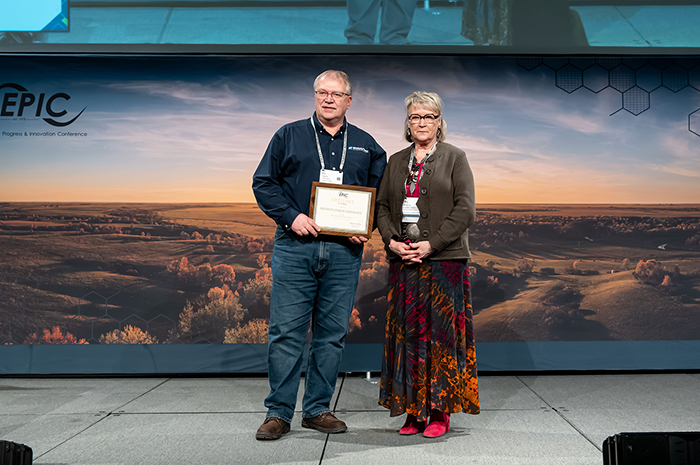One Big Beautiful Bill to reshape American energy policy
In a legislative environment where many energy incentives were rolled back or eliminated, Minnkota, its members and cooperatives across the nation stood strong and saw results.
Electric cooperative advocacy delivers results in fast-changing legislative environment
In a legislative environment where many energy incentives were rolled back or eliminated, Minnkota, its members and cooperatives across the nation stood strong and saw results. Thanks to consistent and collective advocacy, the One Big Beautiful Bill Act (OBBBA), signed into law on July 4, preserved key provisions that ensure co-ops remain on equal footing with investor-owned utilities in the nation’s evolving energy landscape.
Among the notable victories, electric cooperatives successfully retained access to elective-pay energy tax credits and the ability to transfer those credits – two vital provisions that level the playing field between not-for-profit co-ops and investor-owned utilities. These tools, first introduced in recent years, allow co-ops to benefit directly from federal energy incentives without needing a tax liability, making it possible to pursue projects that were previously out of reach.
While the bill did accelerate the phaseout of wind and solar tax credits and eliminated federal incentives for electric vehicles, cooperative advocacy helped preserve core opportunities and helped avoid major challenges.
Wind and solar tax credit phaseout
One of the most impactful changes under the new law is the accelerated phaseout of tax credits for wind and solar projects. To qualify for the credits, projects must now be placed in service by Dec. 31, 2027 or begin construction within 12 months of the bill’s passage.
Just days after the bill’s signing, the White House issued an executive order directing the Treasury Department to tighten the definition of “start of construction,” signaling that only projects with a substantial portion already built may qualify for credits.
The legislation also imposes stricter domestic content requirements and penalties for using materials linked to foreign entities of concern, which creates some complexity in project planning and supply chains.
While wind and solar face compressed timelines and stricter conditions, other energy technologies fared better. Battery storage, geothermal and nuclear projects retain full tax credit eligibility into the 2030s.
Maintaining carbon capture as an option
Where OBBBA reduces support for renewables, it expands some incentives for carbon capture, utilization and storage (CCUS). Minnkota is a national leader in CCUS through Project Tundra, which proposes to retrofit the Milton R. Young Station with carbon capture technology.
Under the updated 45Q tax credit, the law now offers equal incentives for both enhanced oil recovery (EOR) and geologic sequestration. This bolsters financial support options for CCUS, which can help ensure reliable baseload power plants can operate in a carbon-managed future.
EV incentives eliminated
One of the most visible changes for consumers under OBBBA is the elimination of federal electric vehicle (EV) tax credits. The move marks a significant policy shift away from government-supported EV adoption and places more emphasis on market-driven growth.
Industry analysts expect the change to slow the pace of EV adoption, particularly among first-time buyers and in regions where upfront cost remains a primary barrier.
Looking ahead
Federal energy policy continues to swing dramatically with each administration, creating challenges for utilities planning infrastructure and investments with 30- to 50-year horizons.
Minnkota emphasizes that stable, bipartisan energy policy is essential to providing the certainty needed for long-term resource planning. Through continued advocacy work, electric cooperatives are engaging with federal leaders to ensure their priorities are reflected in all future decisions.
...



